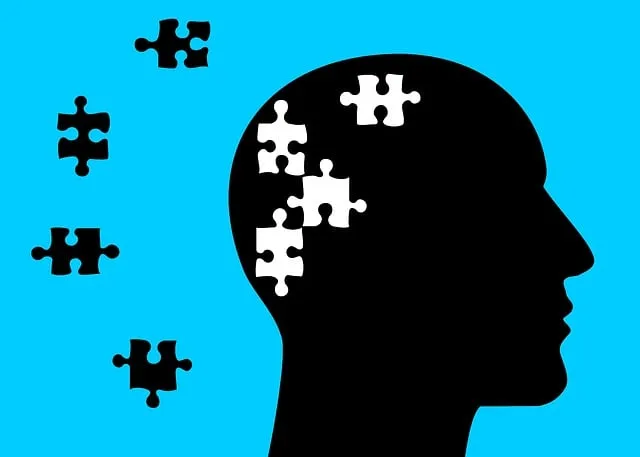Mental wellness group facilitation, offered through Littleton Kaiser Permanente's comprehensive mental health coverage, empowers individuals facing mental health challenges. Skilled facilitators create safe spaces for open dialogue, peer support, and coping strategy development. This collaborative approach enhances well-being, reduces stigma, and contributes to advocacy efforts, aligning with Littleton Kaiser Permanente's commitment to holistic care. Facilitators play a crucial role in guiding discussions, ensuring inclusivity, and facilitating activities like Mindfulness Meditation while adhering to ethical guidelines and coverage policies.
Mental wellness group facilitation is a powerful approach to supporting individuals navigating various mental health challenges. In this article, we explore the art and science of facilitating such groups, focusing on techniques that foster healing and connection. We delve into the role of facilitators, essential for creating safe spaces, encouraging open dialogue, and incorporating therapeutic activities. Furthermore, we examine how the Littleton Kaiser Permanente mental health coverage can enhance these efforts, providing resources to maximize access to care through group facilitation.
- Understanding Mental Wellness Group Facilitation
- – Definition and significance of group facilitation in mental health support
- – Key roles and responsibilities of a group facilitator
Understanding Mental Wellness Group Facilitation

Mental wellness group facilitation is a specialized skill that plays a pivotal role in supporting individuals navigating mental health challenges within a collaborative setting. It involves creating a safe and supportive environment where participants can share experiences, gain insights from peers, and develop coping strategies. Facilitators, often professionals like those offered by Littleton Kaiser Permanente mental health coverage, serve as guides, ensuring group dynamics foster growth and understanding.
This process goes beyond individual therapy; it leverages the power of community. By facilitating open dialogue, these experts encourage members to navigate their mental health journeys together. This collaborative approach is not only beneficial for personal healing but also contributes to a broader Mental Health Policy Analysis and Advocacy effort, challenging societal stigmas and advocating for better access to services, including Community Outreach Program Implementation initiatives.
– Definition and significance of group facilitation in mental health support

Group facilitation plays a pivotal role in enhancing mental health support, especially within healthcare organizations like Littleton Kaiser Permanente. This approach involves skilled professionals guiding small groups of individuals with shared experiences or challenges to foster open dialogue, build community, and encourage personal growth. The significance lies in its ability to create a safe, supportive environment where participants can share their struggles, learn from one another, and develop coping strategies collectively.
Effective group facilitation techniques are crucial for the development of mental wellness coaching programs. By facilitating meaningful discussions, promoting positive thinking, and teaching stress management skills through workshops and organized sessions, facilitators enable participants to navigate life’s challenges more effectively. This holistic approach not only enhances individual well-being but also contributes to building a resilient community within the healthcare setting, reflecting the broader goals of comprehensive mental health coverage like that offered by Littleton Kaiser Permanente.
– Key roles and responsibilities of a group facilitator

In facilitating mental wellness groups, the group leader or facilitator plays a pivotal role in creating a safe and supportive space for individuals to connect, share experiences, and support one another. Their primary responsibility is to guide the discussion, ensuring every participant feels heard and valued. This involves actively listening to each member, encouraging open dialogue, and fostering an environment that promotes trust and understanding. The facilitator should possess excellent communication skills, adaptability, and cultural competency, as these are essential for addressing diverse perspectives and needs within the group. They must be able to navigate sensitive topics, offer guidance when needed, and facilitate meaningful activities related to mental wellness practices like Mindfulness Meditation.
A key aspect of their role is ensuring the group adheres to ethical guidelines and maintaining confidentiality. As a Healthcare Provider, the facilitator should have a strong understanding of the Littleton Kaiser Permanente mental health coverage policies, allowing them to navigate insurance-related matters effectively. By creating a structured yet flexible agenda, they can lead sessions that cater to the evolving needs of the group, ultimately enhancing participants’ Mental Wellness and personal growth.
Mental wellness group facilitation plays a pivotal role in enhancing the effectiveness of mental health support, particularly under comprehensive coverage like that offered by Littleton Kaiser Permanente. By fostering a collaborative and safe space, facilitators empower individuals to share experiences, build resilience, and gain new perspectives. Understanding the core roles and responsibilities ensures optimal group dynamics, making these sessions invaluable resources for those navigating their mental wellness journeys.






